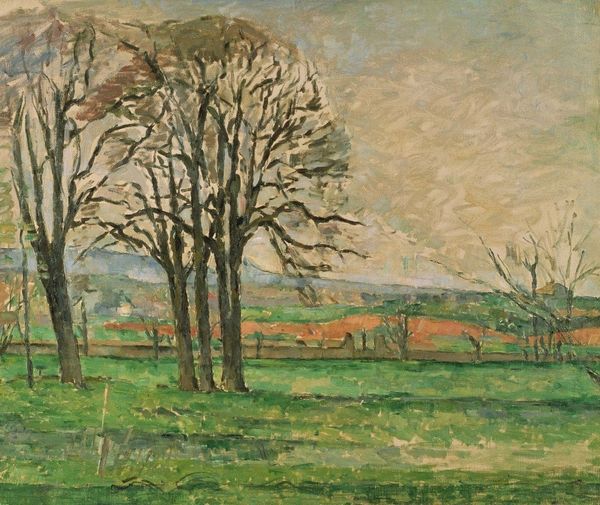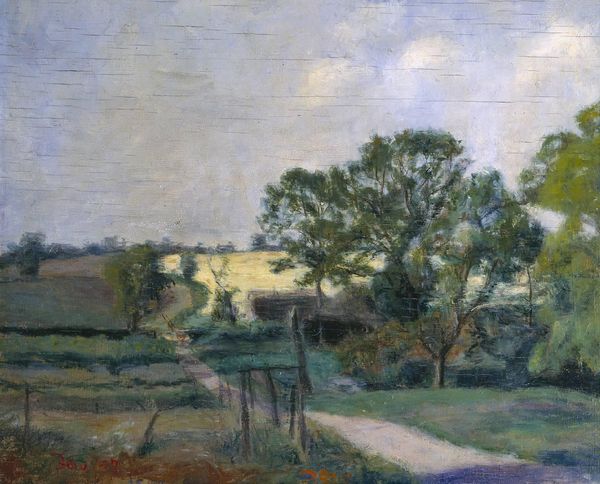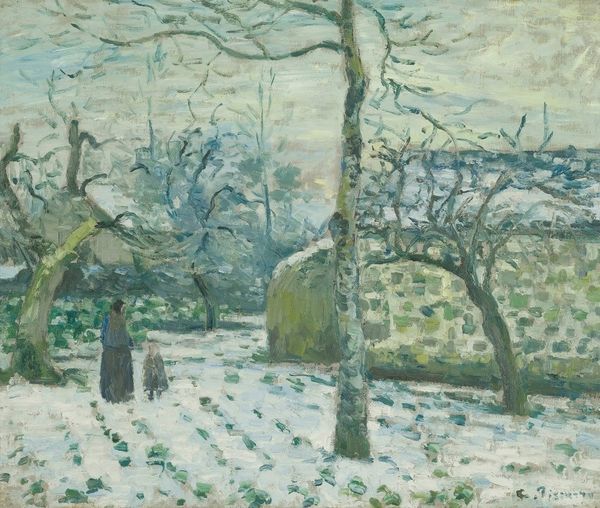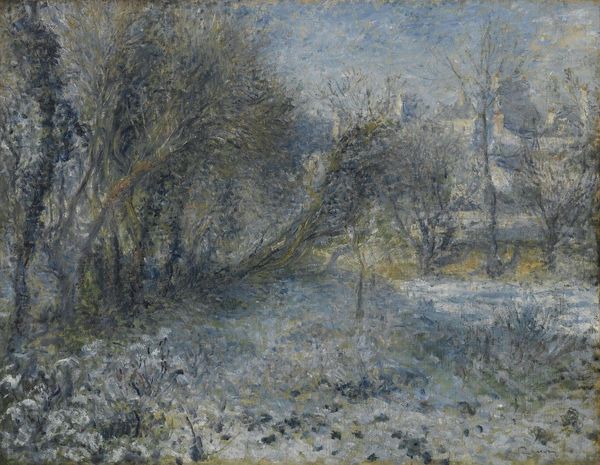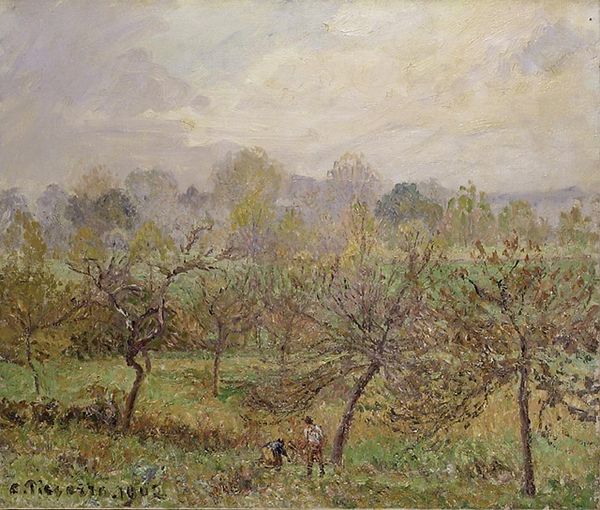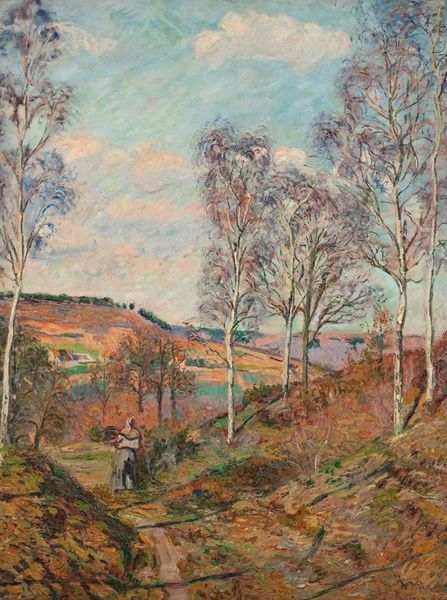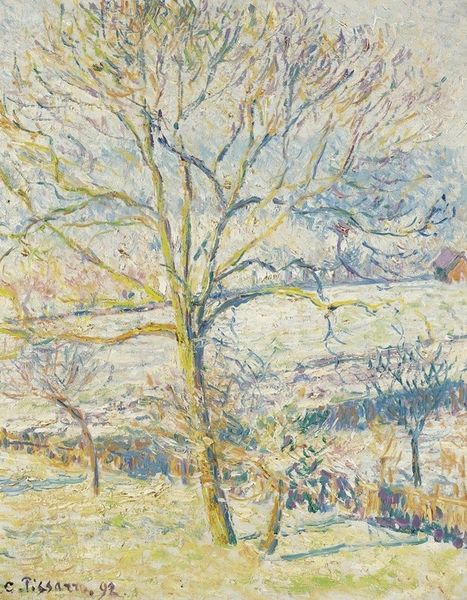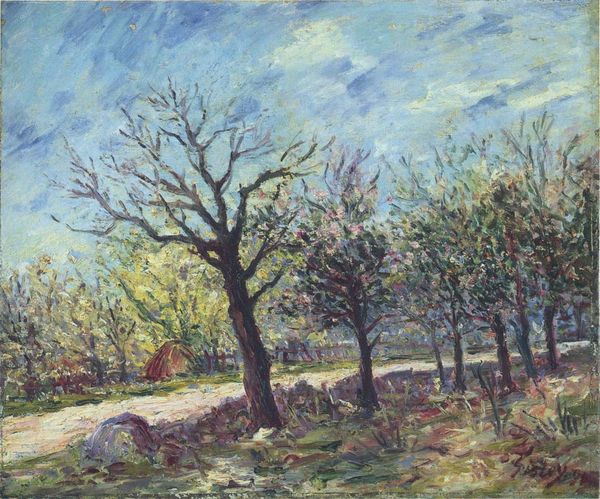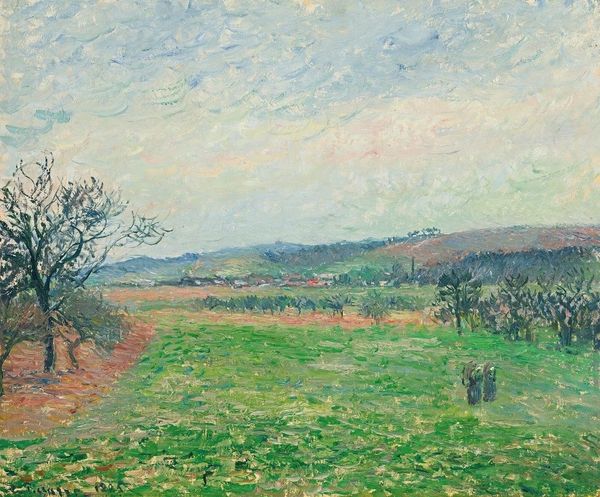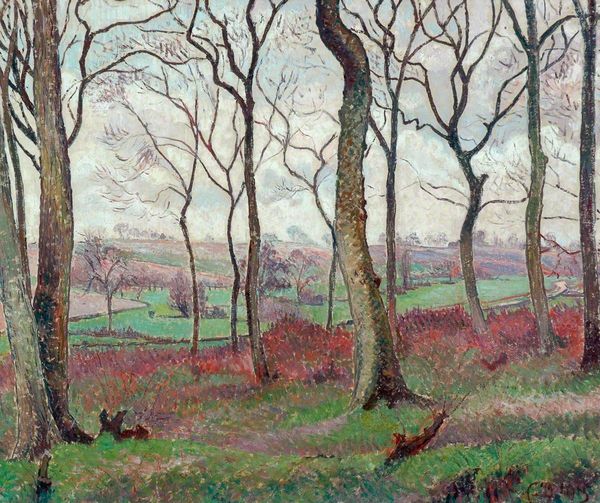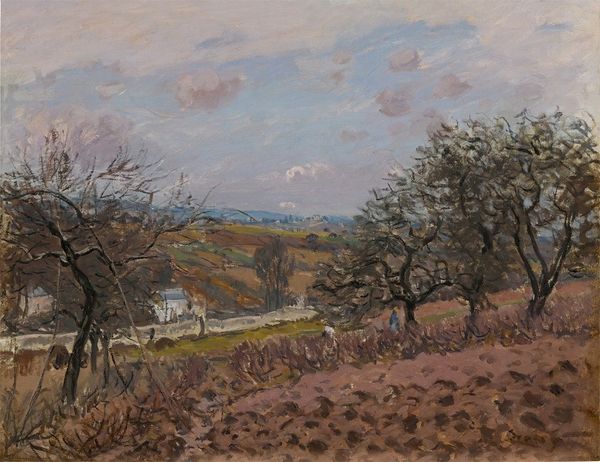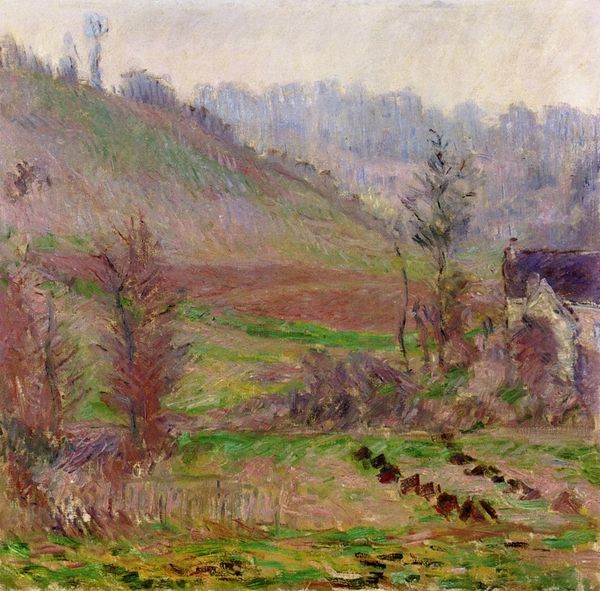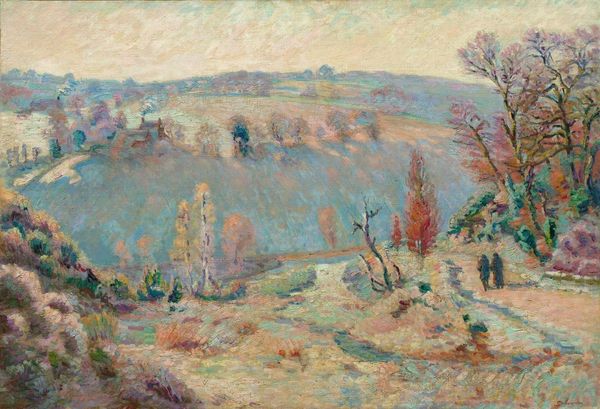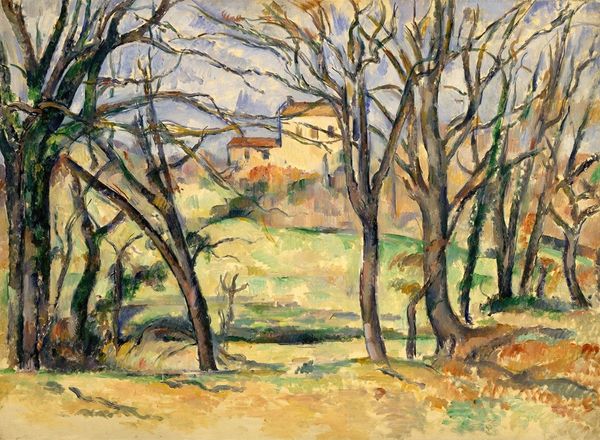
painting, plein-air, oil-paint
#
painting
#
impressionism
#
plein-air
#
oil-paint
#
landscape
#
impressionist landscape
#
oil painting
Copyright: Public Domain: Artvee
Editor: Here we have Camille Pissarro's "The Pond at Montfoucault, Effect of Winter," painted in 1874 using oil on canvas. There's a quiet stillness to it; the colors are muted and cool. How do you interpret this work within the context of its time? Curator: Pissarro, aligned with the Impressionists, actively challenged the academic art establishment. Consider the "Salon" system – the official exhibitions controlled by the Académie des Beaux-Arts. Impressionists like Pissarro were frequently rejected. What do you notice about the brushstrokes? Editor: They're quite loose, broken, not blended smoothly like you'd see in academic painting. It’s almost like capturing a fleeting moment. Curator: Exactly. This "unfinished" quality was a direct rebellion against the polished, idealized landscapes favored by the establishment. Painting *en plein air*, or outdoors, as they often did, prioritized capturing the immediate sensory experience. The location too - a seemingly unremarkable rural scene – democratizes art's subject matter. Why paint a pond when you could paint a heroic battle scene? Editor: So, by choosing everyday subjects and painting in a radically different style, Pissarro and the Impressionists were making a statement? Curator: Precisely. They were asserting a new vision of art, one rooted in individual perception and modern experience, challenging traditional power structures within the art world. Consider, too, the rise of industrialization during this period – were the Impressionists perhaps looking for an escape in these landscapes, a retreat from the rapidly changing urban environment? Editor: That’s a perspective I hadn’t fully considered. Seeing it as a response to social and industrial changes adds another layer of meaning. Curator: The politics of imagery, eh? Sometimes it's more than meets the eye. Editor: Absolutely. I'll definitely look at Impressionism with fresh eyes now. Thank you!
Comments
No comments
Be the first to comment and join the conversation on the ultimate creative platform.
